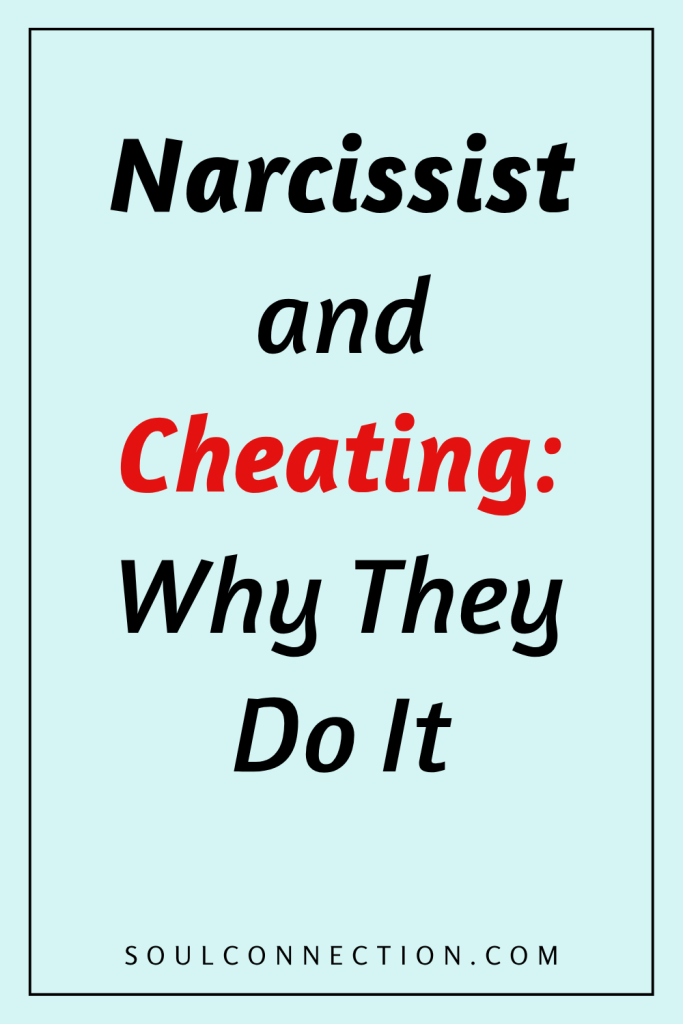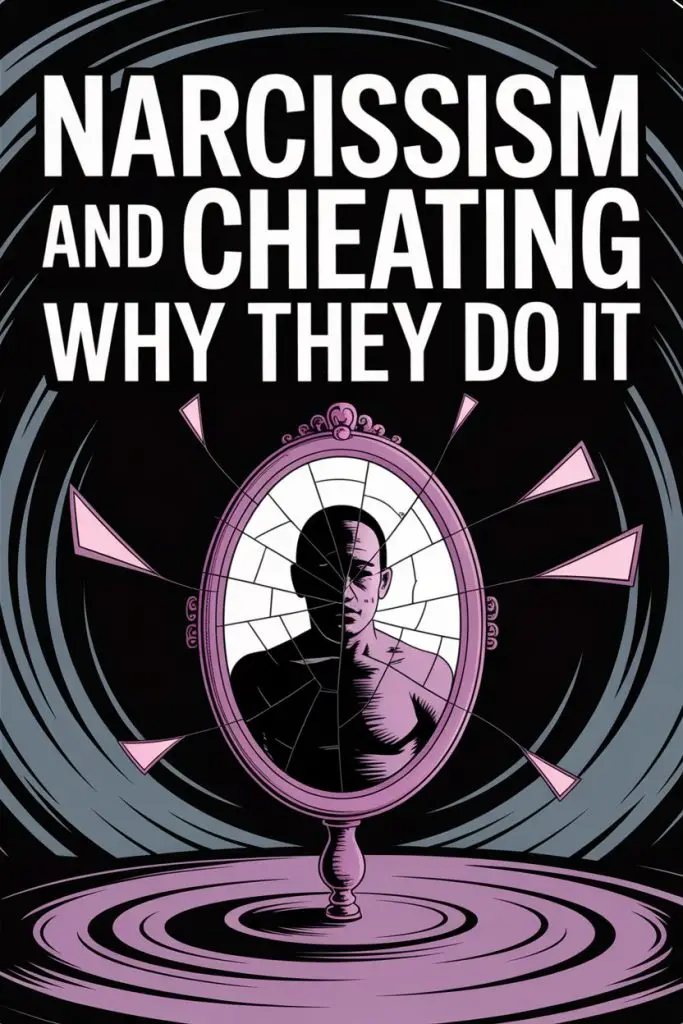Nothing quite bruises the soul like discovering your partner’s been cheating. Sprinkle a dash of narcissism into the mix, and you’ve got yourself a cocktail that’s less “Sex on the Beach” and more “Anxiety on the Rocks.”
If you’ve found yourself wondering why narcissists cheat—and, frankly, how they manage to rationalize it—grab your metaphorical detective hat.
We’re about to examine what makes narcissistic partners cheat, how it looks, and how you can protect your heart (and, ideally, your sanity).
Narcissism 101: The Cliff’s Notes
Before breaking out the Sherlock Holmes magnifying glass, it helps to know what’s cooking inside the mind of a narcissist. Picture the emotional equivalent of a bottomless pit.
Narcissists crave admiration, validation, and attention the way toddlers crave snacks—relentlessly, with no off switch, and sometimes at 3 a.m.
This isn’t just garden-variety self-confidence. Narcissists typically lack empathy, inflate their own importance, and expect special treatment.
Their egos are so fragile you’d think they were made of spun sugar. Sadly, their partners often end up as collateral damage in the quest to feed that endless appetite.
Cheating as a Narcissist’s Favorite Party Trick
Cheating appeals to narcissists like free Wi-Fi to a teenager. The thrill, the novelty, the attention—it’s irresistible. Some folks are unfaithful because they’re unhappy, bored, or emotionally disconnected.
Narcissists cheat for those reasons too, but with a selfish twist.
Affairs, flings, or even just a bit of “harmless” flirting on the side serve as rocket fuel for their ego. Someone else wants them? Jackpot. They’re still “desirable,” “irresistible,” “special.”
If you think that sounds like something out of a soap opera, you’re not wrong. The drama is half the fun.
It’s Not About You (Even When It Hurts Like Hell)
Here’s the ugly truth: if your narcissistic partner cheats, it’s not because you weren’t enough. It’s not about your looks, your personality, or the way you pronounce “quinoa.”
Narcissists cheat to fill their own internal void, not because of a shortcoming in their partner.
They need an endless supply of affirmation and novelty, and the easiest way to get it is by collecting admirers. If their partner isn’t treating them like the second coming of Beyoncé, they may seek out someone who will—at least for a night.
The Thrill of the Chase
Narcissists love the game. The chase, the secrecy, the attention, the conquest—it’s all part of the experience.
Seducing someone new makes them feel powerful and alive, often in a way that day-to-day life with a committed partner simply can’t.
Many narcissists bore easily, especially once a relationship settles into a comfortable, predictable rhythm.
That comfy familiarity the rest of us crave? Narcissists often see it as proof they need to shake things up. (Cue the dramatic entrance of a new “friend.”)
Entitlement: The Narcissist’s Passport
A sense of entitlement practically oozes from narcissists. Rules? For mere mortals. If they want something, they should have it—end of story. This includes attention, admiration, and yes, sex.
Monogamy, in their view, might be a lovely idea for other people. But surely nobody expects them to play by those rules?
If caught, many narcissists react with indignation, outrage, or a laundry list of justifications. “It just happened!” “You drove me to it!” “We weren’t really happy!” Translation: I wanted it, so I did it.
Lack of Empathy: Collateral Damage? What’s That?
A defining trait of narcissism is the inability—or unwillingness—to truly grasp how their actions affect others. Cheating, for them, doesn’t come packaged with guilt or shame.
Partners left sobbing into their pillows? That’s unfortunate, but hardly as important as their own happiness.
If a narcissist does apologize, prepare for a masterclass in self-pity. Somehow, they’re always the real victim.
Manipulation: Gaslighting and Blame Shifting
Confront a narcissist about cheating, and you might find yourself caught in a whirlwind of gaslighting. “You’re imagining things.” “You’re just insecure.” Or the classic: “If you trusted me more, I wouldn’t have to sneak around.”
Narcissists twist reality into pretzel shapes to avoid responsibility. If all else fails, they’ll play the blame game. Your supposed shortcomings become their hall pass for betrayal.
Cheating as Emotional Regulation
A narcissist’s emotional landscape often resembles a rickety rollercoaster. When boredom, insecurity, or fear of abandonment strikes, cheating becomes a quick fix. It’s not about the other person—it’s about soothing their own nerves.
This cycle can happen repeatedly. Each affair is a hit of dopamine, a rush of excitement, and confirmation that they’re special. When the high wears off, well, time to queue up the next distraction.
The Role of Grandiosity
Every narcissist is the star of their own movie. Flirting, seducing, and cheating become scenes in which they dazzle, charm, and conquer. The more “admirers” they have, the more convinced they are of their own allure.
It doesn’t matter if their behavior leaves behind a trail of heartbreak. That’s background noise—they’re already rehearsing for their next leading role.
Cheating as Revenge
It’s not all about passion and excitement. Sometimes, narcissists cheat to get even.
If you’ve criticized, disappointed, or—heaven forbid—outshone them, they may cheat as a form of punishment. This isn’t adult problem-solving; it’s emotional warfare.
The worst part? They may never admit it. But rest assured, the silent scorecard in their mind gets updated every time they feel slighted.
Double Standards: The Cheater Who Can’t Be Cheated On
Narcissists tend to reserve monogamy—fidelity, honesty, the whole lot—for their partners, not themselves. If you so much as glance at someone else, brace yourself for melodrama.
Cheating by a narcissist? Justifiable. Cheating on a narcissist? Unforgivable.
This double standard is classic narcissistic hypocrisy. Their needs, their exceptions, their rules.
Can a Narcissist Ever Change?
Some folks hold onto hope that, with enough love, patience, or therapy, a narcissist might finally transform into a trustworthy partner.
Change is possible, but only if the narcissist a) recognizes they have a problem, and b) genuinely wants to change.
Spoiler alert: narcissists aren’t famous for admitting fault, much less rolling up their sleeves for self-improvement. Therapy works best for those who acknowledge their issues—which isn’t exactly the narcissist’s favorite activity.
How to Protect Yourself
Spotting narcissistic cheating patterns is half the battle. If you’re seeing the signs—gaslighting, entitlement, wild mood swings, boundary-pushing—it’s time to put your emotional well-being first.
Set boundaries like your life depends on it. Don’t ignore your gut. Trust, once broken by repeated affairs and manipulation, is tough (sometimes impossible) to rebuild.
Seeking support from friends, family, or a counselor can help you regain perspective. Don’t let a narcissist rewrite your reality.
Should You Stay or Should You Go?
Some people cling to the hope that things will improve, but staying with a serial cheater—especially one with narcissistic traits—often means sacrificing your own self-worth.
It’s not easy to walk away, but hanging onto a toxic relationship tends to end in more tears than triumph.
If you’re stuck in analysis paralysis, try flipping the script: if your best mate were in your shoes, what advice would you give them? Sometimes the answer is painfully clear, even when your heart still wants to believe.
Conclusion Cheating Isn’t the Partner’s Fault
When a narcissist cheats, it’s about their emptiness, not your inadequacies. Their endless search for validation, excitement, and control comes at the cost of loyalty and real intimacy.
Sad? Yes. Avoidable? Sometimes.
If you’re tangled up with a narcissist who cheats, it’s time to decide just how much more of your heart you’re willing to hand over to someone who treats it like a party favor.
Your love, trust, and sanity deserve better.
One thing’s for sure: you don’t have to play a supporting role in someone else’s drama.
Your story deserves a much happier ending.


